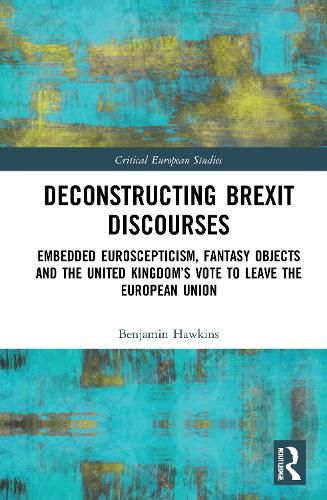Readings Newsletter
Become a Readings Member to make your shopping experience even easier.
Sign in or sign up for free!
You’re not far away from qualifying for FREE standard shipping within Australia
You’ve qualified for FREE standard shipping within Australia
The cart is loading…






This book expands on and complements the burgeoning Brexit literature by placing the UK's vote to leave the EU in its longer historical and discursive contexts.
It examines the embedded Euroscepticism, which has dominated British political discourse on the European project and the role of the UK within it for at least the last three decades. Brexit was the consequence of a consistent denigration of the European integration project in the public sphere in which the terrain, and the conceptual vocabulary, of debate were set by a dominant, right-wing Eurosceptic discourse. This framed the EU as inherently heterogeneous and antagonistic to the UK. The book examines how ideas of British exceptionalism, which underpin Eurosceptic discourses, are sustained and reproduced and offers an account of their enduring, affective power amongst the British population. It is in this context that it was possible for pro-Brexit campaigners to assemble and enthuse a new coalition of voters sufficient to deliver a 'leave' majority on 23 June 2016.
This text will be of key interest to scholars and students of British, EU and European politics, the media and press, public opinion, political behaviour and nationalism studies.
$9.00 standard shipping within Australia
FREE standard shipping within Australia for orders over $100.00
Express & International shipping calculated at checkout
This book expands on and complements the burgeoning Brexit literature by placing the UK's vote to leave the EU in its longer historical and discursive contexts.
It examines the embedded Euroscepticism, which has dominated British political discourse on the European project and the role of the UK within it for at least the last three decades. Brexit was the consequence of a consistent denigration of the European integration project in the public sphere in which the terrain, and the conceptual vocabulary, of debate were set by a dominant, right-wing Eurosceptic discourse. This framed the EU as inherently heterogeneous and antagonistic to the UK. The book examines how ideas of British exceptionalism, which underpin Eurosceptic discourses, are sustained and reproduced and offers an account of their enduring, affective power amongst the British population. It is in this context that it was possible for pro-Brexit campaigners to assemble and enthuse a new coalition of voters sufficient to deliver a 'leave' majority on 23 June 2016.
This text will be of key interest to scholars and students of British, EU and European politics, the media and press, public opinion, political behaviour and nationalism studies.